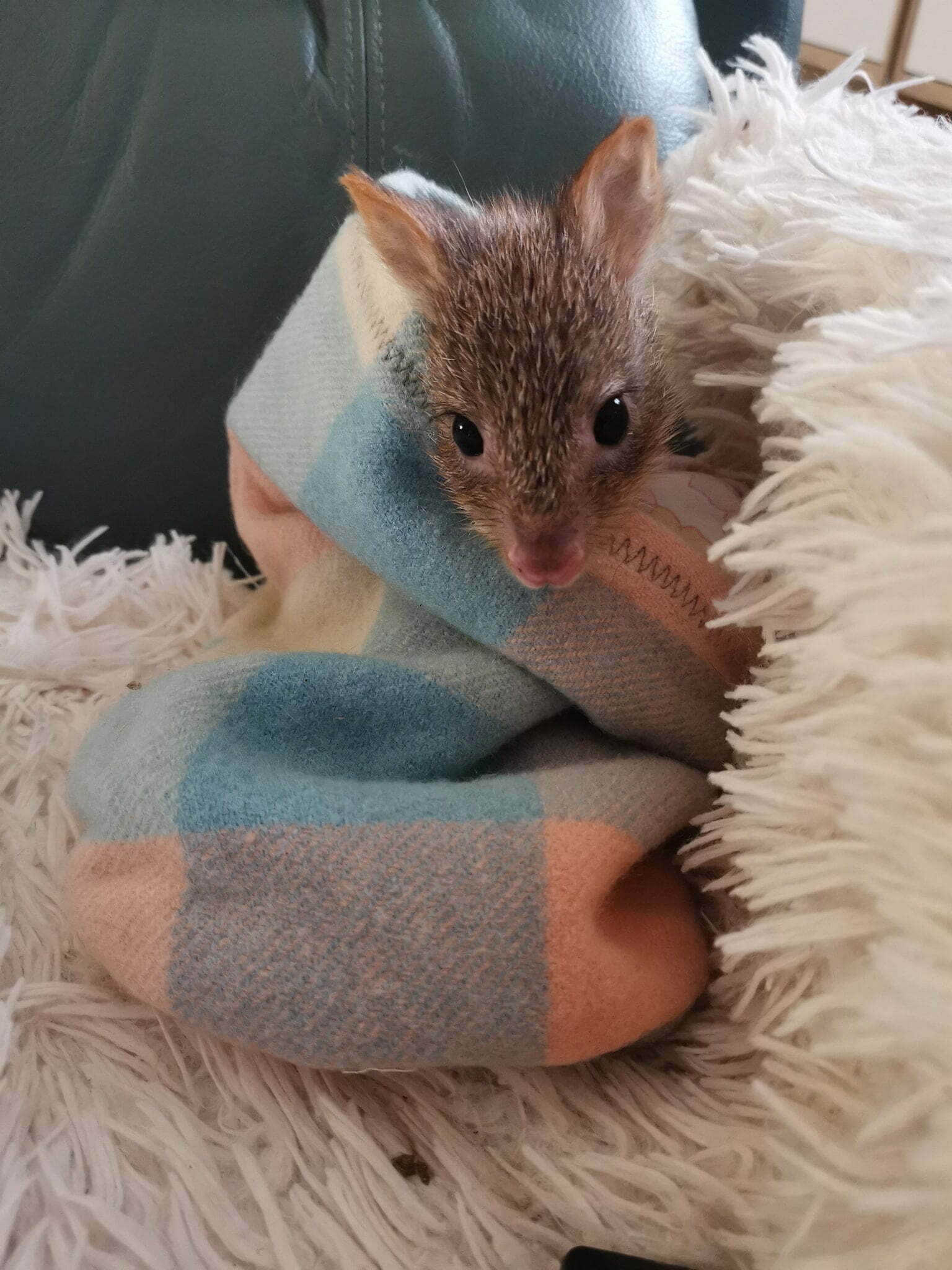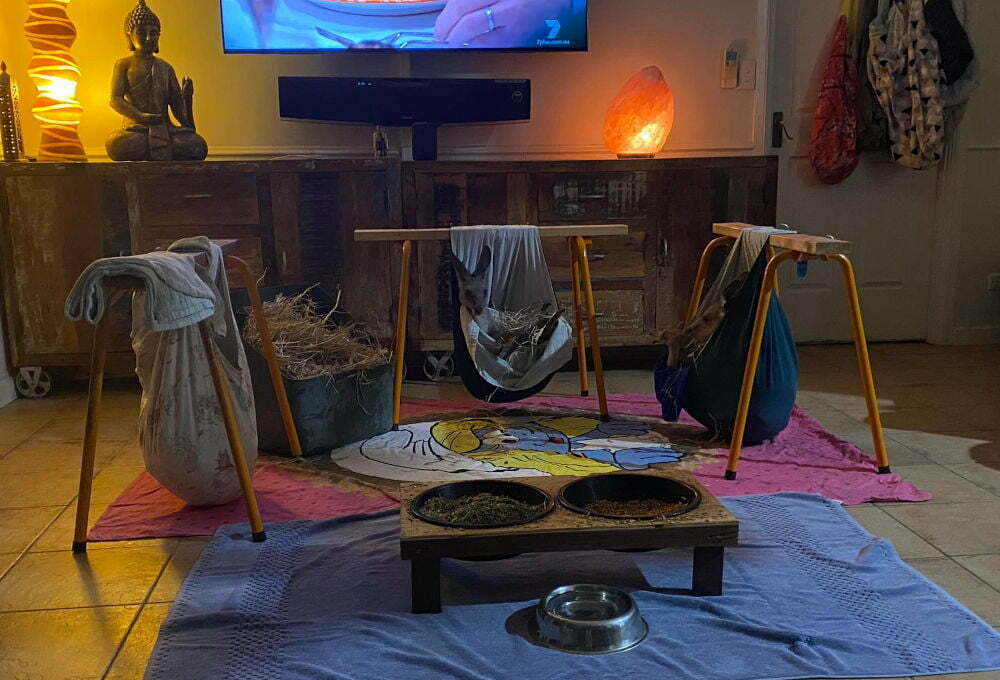What you need to do to become a macropod carer
Call us on 0414 717 374
We do courses on Macropod care throughout the year
Care for ME
Training
You must be an NQ Wildlife member to attend this training. Bookings open soon
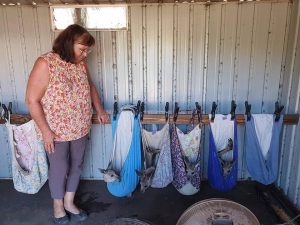
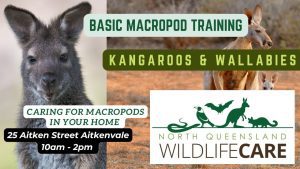
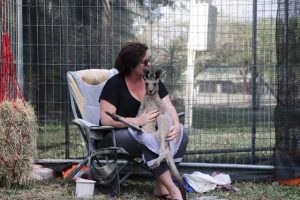
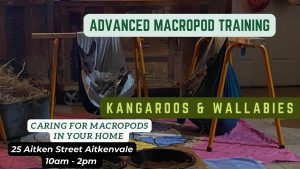
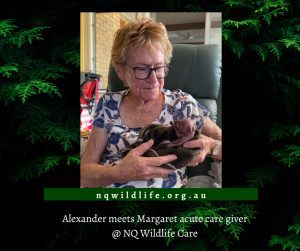
Becoming a Macropod carer with NQ Wildlife
Join our family of Macropod carers
NQ Wildlife Care runs courses throughout the year in Macropod care and rescue / become a member /take a course /grab the skills you need and start caring for our lovely macropods in your home
It is the most rewarding experience ever.
Becoming a Macropod carer
- Here at NQ Wildlife, we run carers courses as we like to give you the best chance of being the best carer you can be.
- Our Wallabies and Kangaroos often come to us via car accidents where the mum has been killed or through dog attacks, cat attacks, fence incidents, and other unhappy happenings.
- To give the young Joeys the best chance the joeys are paired with the right carer and another joey as a buddy to build a sense of mob and the two Joeys are later released together back into the wild together. This is a tried and successful practice for most Macropod rehabilitation and release throughout Australia.
- To care for our Macropods with NQ Wildlife you will come under our wildlife permit.
- You will need to join as a member, and complete the introduction to wildlife care and the caring for Macropods basic training course.
- A coordinator will then offer you a joey when they think you are ready to start caring for a young Joey.
- What do you need?
- Pouches for the joeys to hang in /Liners/times many
- Food, bottles teats, treats
- You go through what supplies and equipment is needed during the training courses.
- You need a safe place to hang your joeys during the day and the evenings away from other animals in your home and noisy environments.
- The feeding schedule depends on the size of your joey but will vary between 4 and 5 feeds a day.
- All joeys need outside time for vitamin D and grass grazing.
- Small joeys can be placed in a basket while still in their pouches and watched while outside, older joeys can go into a secure enclosure at least 3×3 to stretch their legs during the day they still need to be able to jump back into their pouches to rest / Or roam around your yard if the fence is high enough while you are sitting there with them.
- It is advisable to have shade cloth walls so to protect your joey if it is in an enclosure and gets frightened and runs into the walls. More can be learned about enclosures and the size needed for your joey via your Macropod coordinators and courses.
- Optimum conditions are a large property where the animal can be released into the wild later but we know this isn’t the reality for a lot of our carers.
- Joeys are kept in care for an average of a year then they move to a new carer where they are placed as a pair with other wallabies or kangaroos and learn to be a mob in the wild
- Remember, we raise to RELEASE!
We must care for our wildlife in a way that ensures their survival
once returned to the wild.
For any information on rescuing/rehabilitating macropods please call us at
NQ Wildlife Care on 0414 717 374
if you are interested in becoming a carer also please get in touch
we provide training, support and resources for our carers.
Joey like to hang around all day when small
put grass with roots in our bags and we will get good bacteria from the dirt and nutrients and enzymes from the grass
Even though we miss our mum
we feel safe in your care, we need love and warmth and your time
We need your care
We often arrive hurt scared without our mother and very vulnerable
As we gain our strength we return the love to our carers
.
When its time to go, we’ll let you know
We often come back to visit if you are out bush
Interested in becoming a Macropod Carer or rescuer
Contact Us or Visit Our Wildlife Centre.
Phone
0414 717 374 for information
Address
27A Aitken street Aitkenvale
